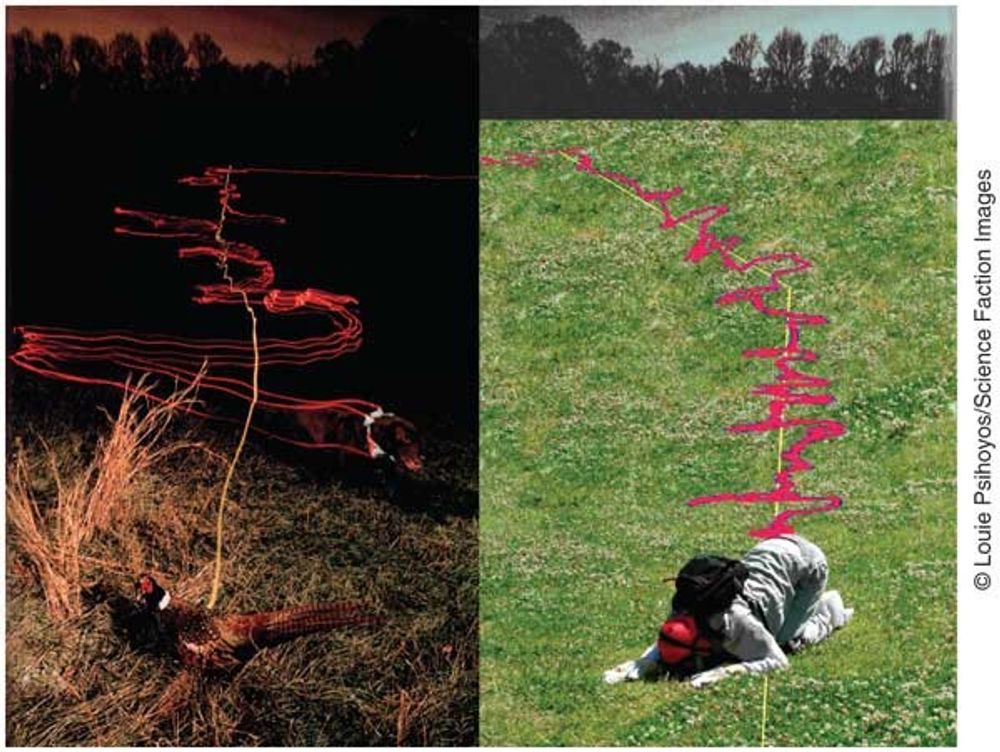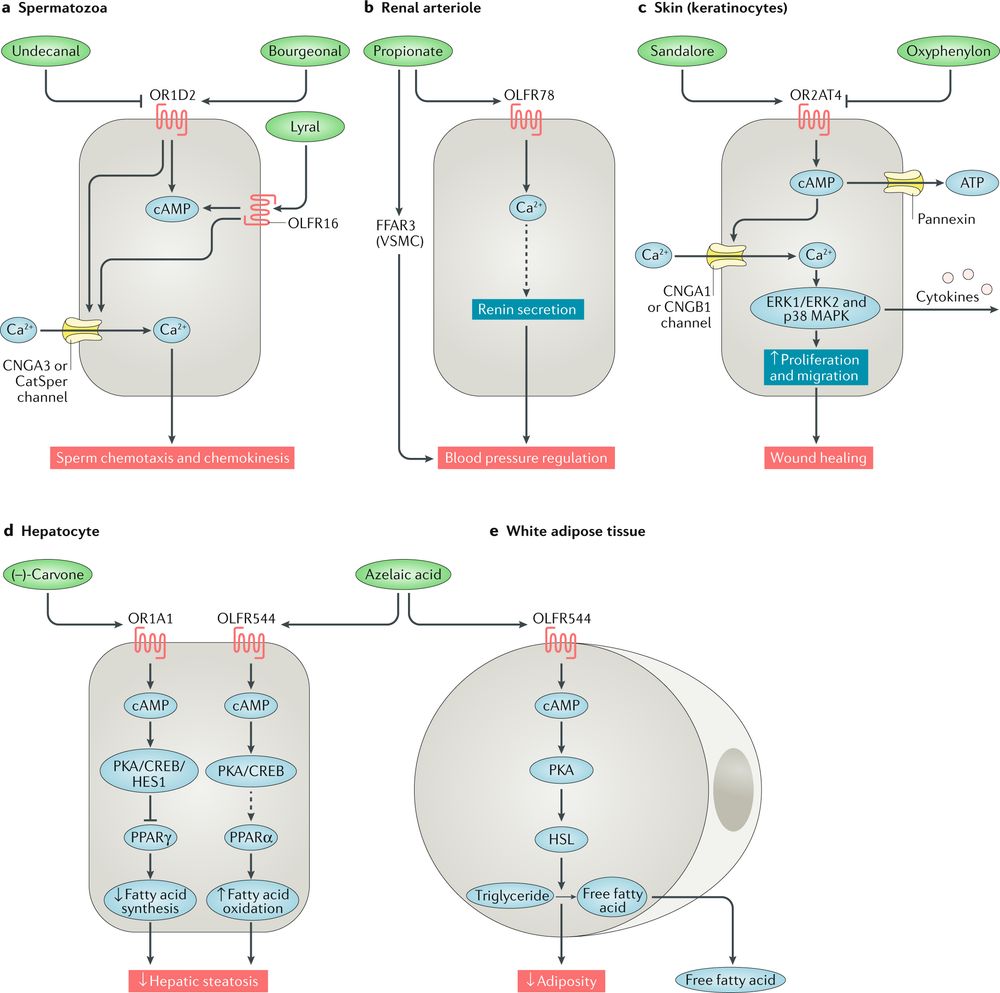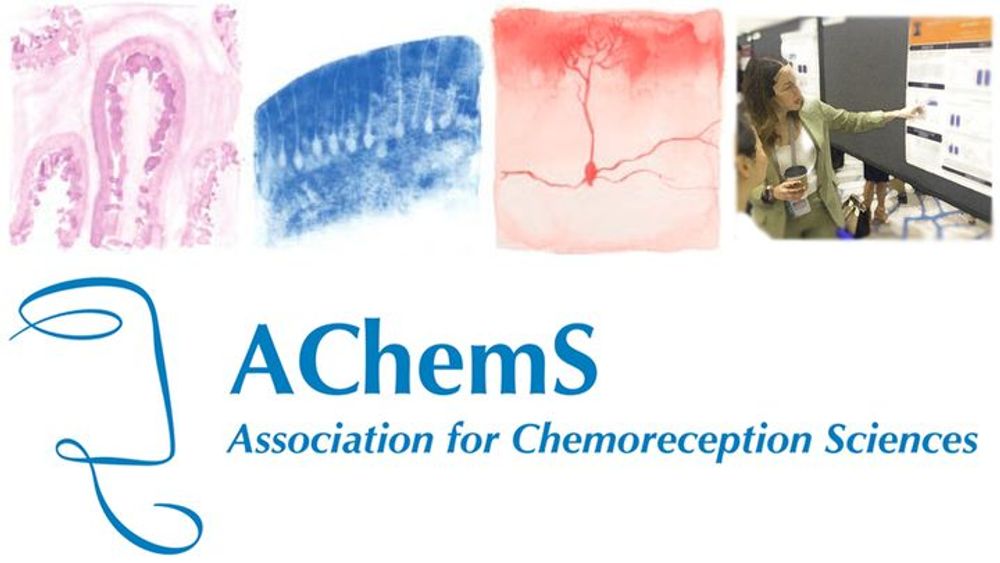🎃 The Headless Horseman couldn't smell you… but his horse could. Horses detect human emotions—including fear—through body odor. They can distinguish fear sweat from joy sweat. No head? No problem. The horse still hunts you down.
#Halloween!! #AChemS
31.10.2025 14:15 — 👍 2 🔁 1 💬 1 📌 0

#AChemS2026 ABSTRACT SUBMISSION IS OPEN! Submit an abstract and present your research at the preeminent international chemosensory meeting achems.org/2026/
Submission Deadline Date: January 12, 2026
23.10.2025 20:59 — 👍 2 🔁 2 💬 0 📌 0
It's World Bread Day! 🥖
Why does plain bread taste sweet the longer you chew? Thank your saliva. Enzymes like amylase break starch into maltose and other sugars—so your taste perception can change over the course of a single bite.
#WorldBreadDay!! #AChemS
16.10.2025 14:15 — 👍 1 🔁 1 💬 1 📌 0
It's National Dessert Day! 🍰
Why does that first bite of cake taste intense, but by the last, you barely notice the sweetness? Sensory adaptation—your taste receptors adjust to constant stimulation, dulling perception bite by bite.
#NationalDessertDay!! #AChemS
14.10.2025 14:15 — 👍 1 🔁 1 💬 1 📌 0
It's National Pizza and Beer Day!🍕🍻
Why do they pair so perfectly? Beer's carbonation lifts fats and oils from cheese, while its bitterness balances pizza's saltiness and umami—creating the perfect flavor reset.
#NationalPizzaAndBeerDay!! #AChemS
09.10.2025 14:15 — 👍 0 🔁 1 💬 1 📌 0

Mechanisms of scent-tracking in humans
Nature Neuroscience - Mechanisms of scent-tracking in humans
Our sense of smell is not as bad as you may think! Did you know that humans can ‘follow their nose’, just like dogs can, e.g. to track their prey?
www.nature.com/artic...
If you want to contribute to our fundraiser, please follow this link www.gofundme.com/f/s....
27.09.2025 14:00 — 👍 2 🔁 1 💬 0 📌 0
🥞 It’s National Pancake Day! 🥞
From crispy edges to fluffy centers, pancakes hit every note—texture, taste, and pure buttery bliss. Who knew breakfast could be such a full-on sensory masterpiece?
#NationalPancakeDay!! #AChemS
26.09.2025 14:15 — 👍 0 🔁 1 💬 1 📌 0

The proust effect: Scents, food, and nostalgia
Autobiographical memories activated by the senses, particularly smell and taste, can be among the most potent and influential, an experience labelled …
The sense of smell is a very powerful trigger for memories. A familiar smell can take you back to childhood or remind you of a past love. Smell taps directly into the brain's memory centers and is the bearer of our most vivid recollections!
25.09.2025 14:00 — 👍 0 🔁 1 💬 1 📌 0

NYAS Publications
Our perception of the sensory world is constantly modulated by the environment surrounding us and by our psychological state; each encounter with the same stimulus can in fact evoke very different pe...
Did you know that expectation of how a food should taste influences what you think it tastes like? Our expectations, drawn from previous experiences, are very important in enhancing or diminishing how we perceive the foods and beverages we eat and drink
24.09.2025 14:00 — 👍 1 🔁 1 💬 1 📌 0
Did you know that olfactory sensory neurons of your nose and taste cells of your mouth regenerate during life, so that your sense of smell and taste remains fresh and sharp? journals.biologists....
Contribute to our fundraiser, please follow this link www.gofundme.com/f/s...
22.09.2025 14:15 — 👍 1 🔁 1 💬 0 📌 0

Why Do People Scrunch Up Their Faces After Tasting Something Sour?
Here's why people make that "sour" face.
Did you know that babies and rodents pull funny faces when they taste something sour or bitter? It’s an instinct to not eat bad or harmful foods.
www.livescience.com/...
If you want to contribute to our fundraiser, please follow this link www.gofundme.com/f/s....
21.09.2025 14:00 — 👍 0 🔁 1 💬 0 📌 0
Did you know that as we age, taste and smell tend to diminish, which can negatively affect everything from eating habits to personal safety. Understanding the changes that occur is key to improving the health and quality of life for older adults.
www.nia.nih.gov/heal...
20.09.2025 14:00 — 👍 1 🔁 1 💬 1 📌 0

Therapeutic potential of ectopic olfactory and taste receptors
Nature Reviews Drug Discovery - Olfactory and taste receptors are ectopically expressed in multiple extra-nasal and extra-oral tissues, exhibiting potential functions in a diverse range of...
Can you believe that the olfactory and taste receptors exist not only in the nose and mouth but are distributed all over our body? They are called "ectopic" receptors, and they might reveal some secrets about how our body senses its environment. www.nature.com/artic....
19.09.2025 14:01 — 👍 1 🔁 1 💬 1 📌 0
🍔 It’s National Cheeseburger Day!🍔
Juicy beef, melty cheese, crisp lettuce, and a toasted bun—burgers deliver a perfect mashup of textures and flavors that light up our senses. Every bite is a full-on flavor experience!
#NationalCheeseburgerDay #AChemS
18.09.2025 14:15 — 👍 0 🔁 1 💬 1 📌 0

Human olfactory psychophysics
Of all the senses, smell is the least understood. Despite centuries of investigation,
science can still offer no satisfying theory for why a particular substance smells
the way it does. Nor do we understand in any detail how we are able to distinguish
the smell of a peach from that of an apricot, or how a particular smell can trigger
long-forgotten memories of a distant time or place. Human olfactory psychophysics,
the study of how humans perceive odors, is possible because humans have acquired language.
Human subjects can report directly if something smells, characterize the smell, or
decide if two smells are distinguishable. Answers to these simple questions have the
potential to provide insight into important questions: What (if any) is the relationship
between the chemical structure of an odor and its perceived smell? What types of olfactory
stimuli can be discriminated, and how is this accomplished in the nose and the brain?
How does experience modulate our perception of odorants? There are of course many
things that cannot be done in humans, for instance genetic manipulation and electrophysiology,
but these types of approaches are successfully used in animal models.
That is the equivalent of finding a drop of perfume in an Olympic-sized swimming pool. www.cell.com/current....
Contribute to our fundraiser through the following link: www.gofundme.com/f/s....
17.09.2025 14:15 — 👍 1 🔁 0 💬 0 📌 0
The SSIB is a non-profit committed to advancing scientific research on food and fluid intake and associated biological, psychological and social processes.
Welcome - www.ssib.org/web/
Join us in Oxford
July 28th - August 1
www.ssib.org/2025/
Philosopher of perception and mind at the University of Nottingham. Interested in all things perceptual.
Webpage: https://gmphilosophy.wixsite.com/giuliamartina
Perfume, medicine & the Medici Grand Dukes in 16th C Florence. PhD researcher at Monash Uni on ARC Project: Pursuing Public Health in the Preindustrial World, 1100-1800. Visiting at EUI. Alumna at Oxford and Birkbeck
He/him. Senior Lecturer in Early Modern History at University of York. Books on 'Smell in Eighteenth-Century England' and 'Smell and the Past'. #smellhistory #smellstudies #sensoryhistory
Zoologist turned psychologist. I study behaviour, smell, and maternal-infant interaction at the Universities of Stirling and Wroclaw. Učím se česky. 🇺🇦 🇪🇺 🏴 🇨🇿 🇵🇱
www.scraigroberts.com
Brain scientist in the making at PDN Cambridge in the Galliano Lab 👨🔬 My PhD is investigating regenerating neurons in the olfactory bulb with patch clamp👃 🧠 Also science writer, hiker and hot chocolate connoisseur 🤸♀️
🧠 PhD student at Cambridge University & Háskóli Islands. Focusing on the intersection between plasticity and genetics in the olfactory bulb
Neuroscientist. Postdoc @GrubbLab- Centre for Developmental Neurobiology - King's College London | Unconventional neurons, axons, dendrites, and how they talk to each other! | Wellcome Trust Early-Career fellow | 🇪🇸🇫🇷🇬🇧
Neuroscientist, Professor @uni-wuerzburg.de,
Chair of Neurobiology & Genetics,
former GroupLeader @mpi-ce.bsky.social,
studying the neural basis of olfaction 🧠🪰
Lab website:
https://www.biozentrum.uni-wuerzburg.de/en/neurogenetics/research/wg-sachse/
Postdoc in the @schierlab. Visiting scientist @RainerFriedri12. PhD @lab_oren @WeizmannScience. What is the molecular basis of good vs evil? #zebrafish #olfaction
Professor in Psych & Neuroscience UChicago. I study smelling and neural #oscillations. #Olfaction, #Neuroskyence, #LGBTQSTEM, #WomenInSTEM, St. John's College alum, BlackLivesMatter. Views are my own. She/Her 🧪✡️🏳️🌈
sniffs out science, neurobiologist turned science writer, PhD in olfaction, interests: brain, senses & science communication.
PhD. Studying Olfaction and Memory.
PI. Olfaction, audition, and autism. Discogs: http://bit.ly/2xlZLbJ Opinions here are mine alone.
We are Olfa Labs, where #science meets #digital to deliver #olfaction in ways you never thought possible.
Vive La Dada!
Mary I. Bunting Fellow, Radcliffe/Harvard
Associate Prof, Indiana U Bloomington
Philosophy & Neuroscience
Book www.hup.harvard.edu/books/9780674278721
Web www.smellosophy.com
Lab thestinktank.weebly.com
Art https://as-barwich.medium.com
Perceptual/affective neuroscience of food consumption at Karolinska Institutet. https://ki.se/en/cns/janina-seuberts-research-group-nutrilab Young Academy of Sweden,
🇪🇺🇬🇧🇸🇪🇩🇪🇧🇷
Neuroscience of Sensory Perception
Group leader: Prof. Jessica Freiherr
https://www.psychiatrie.uk-erlangen.de/forschung/arbeitsgruppen/neurowissenschaften-der-sensorischen-wahrnehmung/
Gouin 🌈
Olfacteur compulsif
Maître de conférences en chimie organique @uvsq.bsky.social
J’écris pour Nez
Osmotécaire
Écrabouilleur de 🦀
Neurobiologist, chemesthesis and olfaction









